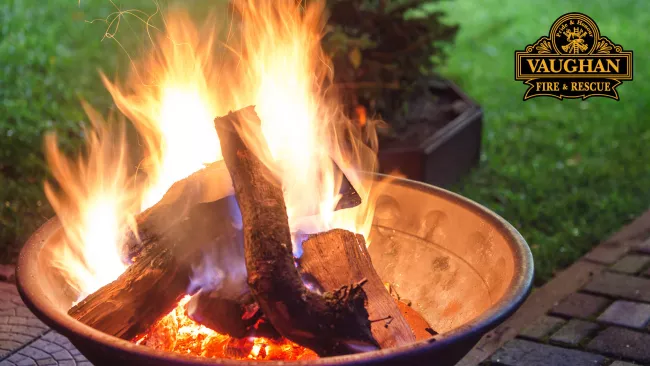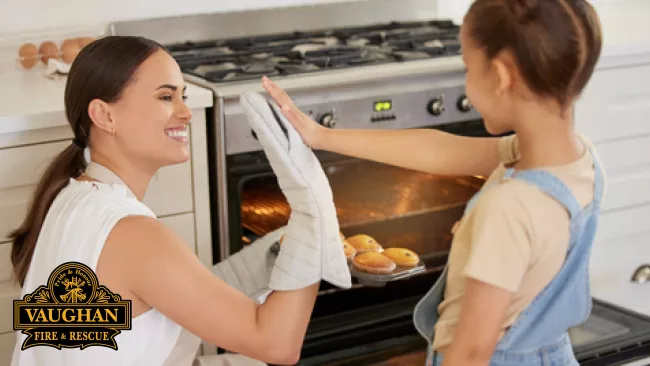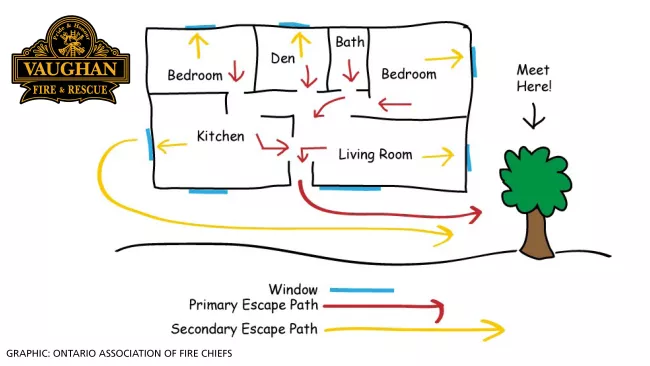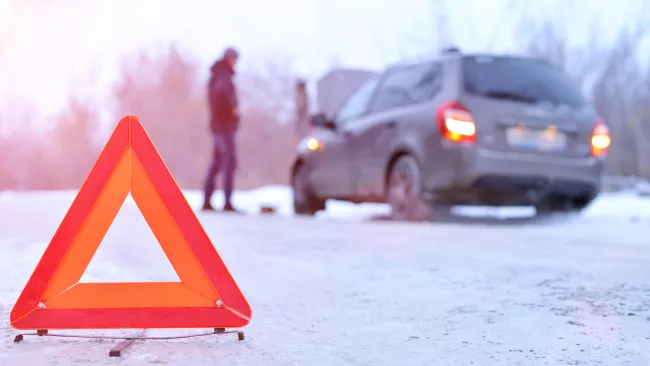Be fire safe outside!
VFRS shares tips for using barbeques, outdoor fireplaces and more
Summer is the perfect time to kick back and relax… but that doesn’t mean fire prevention takes a vacation! As you plan for outdoor fires, barbecues and other seasonal activities, be sure to follow these tips from Vaughan Fire and Rescue Service (VFRS) to stay safe while having fun.
Outdoor fireplaces, chimineas and fuel-burning appliance safety
In Vaughan, chimineas and enclosed fires do not require a permit. But following these safety measures is always a must:
- Store combustible materials and flammable liquids away from all fuel-burning appliances.
- Keep a minimum distance of three metres (about 10 feet) between the fireplace and combustible objects. Put insulating material, such as stone, under the unit if using it on a wooden deck.
- Burn clean, dry firewood only, and limit the amount of firewood being burnt to keep the flames inside the unit.
- Never leave the unit unattended when in use, and follow the manufacturer’s operating instructions.
- Keep a fire extinguisher, pail of water or garden hose nearby, and do not use an outdoor fireplace on windy days.
- Check the unit regularly for cracks or other damage, and clear debris from the chimneys and vents.
- Do not allow the smoke from the fireplace to disturb your neighbours.
If you plan on doing open-air burning (such as burning debris or having a bonfire), you must apply for a fire burn permit from VFRS. Outdoor fireplaces or fire pits might not be allowed in certain areas.
Barbecue safety
When barbecuing, keep these safety tips top of mind:
- Only use barbecues outdoors. They produce carbon monoxide – a colourless, practically odourless, tasteless gas that can be fatal in an enclosed space.
- Ensure all burner ports are free of rust, dirt or cobwebs. Use a pipe cleaner or wire to ensure burners are clear of any obstructions before lighting them up.
- Check hose and cylinder connections to make sure they are in good working condition. To look for leaks, brush a mixture of 50 per cent soap and 50 per cent water onto all hoses and connections – then, look for bubbles. Replace, repair or tighten any connections until the bubbles are gone. Never use a match or lighter to check for leaks.
- Clean out grease traps and keep grill areas free of any debris.
- Place your barbecue in a safe area away from combustible materials, buildings and fences. Radiant heat from a barbecue can damage siding on the exterior of a home or shed.
- Always light the barbecue with the lid open. If the burner does not ignite, turn off the gas and wait five minutes. Keep the lid open, then try again.
When cooking with charcoal grills, only use charcoal briquettes (a compressed chunk of coal dust or charcoal) explicitly designed for that purpose and charcoal lighting fluids to ignite. Sprinkle the briquettes with lighter fluid and allow it to soak in for approximately 10 minutes. Never add fluid after igniting the barbecue and never use gasoline to light a barbecue.
Propane barbecues
If your grill runs on propane, remember these tips:
- Always carry and transport a propane cylinder in an upright position with the safety valve on top. Ensure your vehicle’s windows are open while transporting.
- Never leave a cylinder in a parked car with the windows up. Heat can build up quickly, which, in turn, can cause an explosion.
- Do not store propane inside a building, including a garage. Propane gas is heavier than air – if a cylinder leaks, the escaping gas will settle near the ground. A spark from the pilot light of your furnace, hot water heater or fireplace can cause ignition at any time.
Smoking safety
The hot temperatures and dry conditions we get in the summer increase the risk of smoking-related fires. If you choose to smoke:
- always extinguish cigarettes and cigars in a sturdy metal container.
- never put out a cigarette in a potted plant or on the ground. Dry grass, plants and fertilizer can be highly flammable.
- place a drop of water in your ashtray and allow the ash to cool down fully before putting the contents into a garbage bin or bag.
For more information and fire safety tips from VFRS, visit vaughan.ca/fire.
For updates and news as they happen, subscribe to Vaughan News and follow the official corporate channels on X, Facebook, Instagram and LinkedIn.





